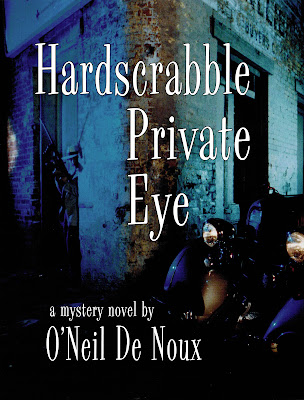A few months past, I said on these pages that I would offer a post about writing historical fiction.
In fact, I wish I had read this post before I started writing historicals!
Now, I had been forewarned. Several years ago, my friend, the excellent writer of cozies, Vicki Delany, said to me: "Don't write historical crime. You narrow your market by doing that."
What she meant was this: I've heard that only about 20% of the crime reading market read historicals. Of those potential readers, most have preferences for a certain time period. Some read Victorian, and no other. Some like classical Rome, and no other. Some like between the wars, like me. Very few historical crime readers read all periods.
So you are reducing your market considerably.
I can attest that this is true, and would speak the same words to aspiring writers today. But my emphasis for this post is different.
Here's what I have to offer, while writing the third book in the 1928 Merry Widow Murder series:
The trouble with writing historical novels strikes me as a very similar to that of writing comedic novels: Not only do you have to come up with an original plot, wonderful characters, engaging dialogue, compelling pacing, and believable motivation like every other author, but you have this additional requirement that other authors don't have. You have to make it funny. And you don't get paid any more for doing it.
Historical novels - and I write exclusively mystery/crime novels now - are of the same ilk. You have to include all the traditional elements of a great mystery book, but you also have to do a tremendous amount of research to get the time period right, and I don't just mean setting. Yes, I give great attention to detail of the food and drink of the time (was Chicken a la King served then? How about a Sidecar?) Music of the time (When exactly did Mack the Knife become available in sheet music?) And clothing (the Flapper look wasn't the only look for clothing in the 1920s, and short skirts weren't as short as Halloween costumes now would have you believe.)
Questions like: When did ocean liners move from coal to bunker C fuel? (1917ish - after the Titanic)
What were the mores of the time? The etiquette? Could respectable women travel alone on an ocean liner, in first class? (Yes, with a maid.) Did the maid have her own cabin, or did she stay in yours?
I nearly go mad with the research I have to do! Every single page I write, I'm looking something up. And that brings me to the comparison with comedic writing:
In historical novels, you have to do everything a writer of contemporary fiction has to do, but you also have this extra requirement: you must research, you must get it right, and - you don't get paid any more for doing it.
I can speak to the importance of getting it right. My first series was actually fantasy, the Rowena Through the Wall series, which takes place during the dark ages in Great Britain.
'But even in fantasy, you have to get it right. In book two of that series, Rowena and the Dark Lord, magic occurs. Rowena inadvertently brings forth a Roman Legion fighting Bodicea. Now, I did the usual thing. Researched Celtic warfare, and researched Roman warfare, so I could get the battle styles right. I also researched Roman armor and weapons, vs Celt. It then occurred to me that I needed to dig deeper into what it would mean for a Roman Legion to vanish from battle. Would they be considered deserters? (Yes) Would this affect their families back in Rome (Hell, yes.) So they would do everything possible to get back to the battlefield, even if it mean imminent death. And that created a turning point for my plot.
Believe it or not, and to my great surprise, some Roman scholars read the book, because they like to read everything that has anything to do with ancient Rome. And one professor emailed me to say, "I can see you used Legion number XXX in the book, located at XXX in the month of..." He enthused about the thrill of reading accuracy in fiction. (Good thing I was a college professor at the time...)
Now, I know that if I had not done my research, I would have heard about it. Even though the book is a fantasy! People love to point out when you get things wrong in a book. So I breathed a sigh of relief, that this time, I carried it off.
But it's a heck of a lot of work.
I've been lucky to get a two-book contract for books two and three, and an option for the 4th. In some ways, I'm relieved, because I'm learning this period of time inside out, and it's good to be able to use it for more than one book.
But I have to ask myself: why do it? Why write fiction set in historical times? I ask myself that every day, writing this third book. And I've come to some sort of conclusion.
There's a certain amount of security, in writing and reading a book that takes place in the past. Why? It's a simple as this:
The world is still here. Mankind survived the trials from the time of our book, survived WW1, the depression, WW11. There's comfort in knowing that the world lives on after the book ends.
But in our world today, who knows? The future is a blank.
And that's why I love writing about the past.
Melodie Campbell can't resist a classic mystery crackling with humour, and that's why she wrote one herself. The Merry Widow Murders is her 18th book, and the first of a new series.











